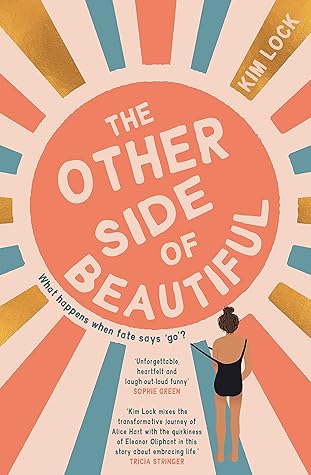More on this book
Community
Kindle Notes & Highlights
A heart in the stillness between beats. A lung between breaths. Out here, in the absence of stuff, there was an immense, deeply silent, very real presence.
Stars wheeled. Crickets chirped. The waxing moon poked its pale face over the saltbush.
Jet black and snowy white, the bird lifted its vicious-looking beak, opened its throat to the sky and sang a beautiful, lilting song.
Life had been reduced to moments of fear strung together like beads on a wire of anticipation. Until finally that string had frayed, unravelled, snapped—beads falling to the floor and scattering everywhere. Flames licking the night sky.
The cold was breathtaking, and the silence was incredible, absolute, its own shouting force. No cars passed on the highway; not a single insect clicked or buzzed in the rocks; not a breath whispered over the saltbush. The Milky Way rolled overhead, the moon cast a dim light from the far horizon, and Mercy’s heels ground through the gravel as she stretched her legs out in front of her, propped against the van in the dark, alone in god knows where.
Geology explained the impossibly balanced piles of granite as the remnants of once-molten bedrock rising up, cooling, then eroding away and Mercy felt keenly how very short a human life is in comparison to the earth. But rather than being terrifying, something about that thought was deeply comforting. No matter what happened, you were always going to be cradled by the earth. It wasn’t possible for it to be any other way.
It’s like my brain leaked out my ears and I was nothing more than a skin full of existential horror.’
and feel that deep heart swoop, that tug, that reminded her that maternal love was inexplicable, and fleshy, and as pure and simple as it could be sickeningly complicated.
She couldn’t escape the collective female conditioning that ensured she be fearful of everything—her environment, her male counterparts, her body hair—but then, on top of that, to feel ashamed and silly for being afraid of everything.
To you, words are nothing but lures for traffic, fodder for advertising revenue. But your words have real-life consequences, Ann, they have a human face. Without any actual understanding of what happened—without a single scrap of empathy or nuance or humanity—you turned that family’s grief, the most awful thing in their life, into nothing but clickbait.
No matter what Mercy or the best, most qualified, most senior of her colleagues did. No matter how people fought it, or denied it, or outraged about it. Death happened. Birth happened. Life happened. It was as devastating, as transformative, and as simple as that.
Eugene, the sensible one, the sane one, the rational one whose father hadn’t left when he was eight and whose mother hadn’t treated him like a mirror to reflect only her own grandeur and then gone ahead and died when that mirror had the audacity to finally turn away.
Grief that had slithered into her chest cavity like a slug, trails of slime up and down her limbs, and gorged itself on her heart until Mercy was nothing but flat, grey nothingness.
Be here now, and know that whatever now is, is transient.
‘There’s a difference between pain, you know, and suffering. The former is a fact to surrender to, the latter is a choice.’
Or she could find somewhere in that great in-between, that place of nuance and clarity and balance. That place where she could do her best, do what she needed to do, and not let the fear of pain and hurt, all the infinite what ifs, crowd her mind until she could do nothing but stare longingly from the shore. Hidden away, watching the outside world from inside the walls.
Some people found that ease in spaceship-like four-wheel drives and caravans with porcelain toilets, some people found ease in prayer, some people found it at the bottom of a bottle. Some people scrambled for it by hiding themselves in a house for two years. And then turning away from the flames.


